#studies
More Evidence Pedestrian Detection Systems Have Some Problems
It hasn’t even been a full month since the American Automobile Association (AAA) released a study showcasing the shortcomings of advanced driving aids and another damning report has come in — this time from the Insurance Institute for Highway Safety (IIHS). While not nearly as bleak as the AAA study, the IIHS research put several models on blast for having lackluster equipment.
The gist appears to be that the quality of pedestrian detection systems varies wildly between models, with the IIHS picking a few winners and losers. That’s important information to have, especially considering automatic braking systems will be standard equipment on all cars by 2022.
Americans Might Not Even Buy 1.4 Million Midsize Cars This Year; Market Share Down By Half Since Recession
Remember the midsize sedan death watch?
When TTAC introduced the series, Americans were still acquiring over 2 million midsize cars per year. That fact, the 2M+ aspect of the segment and the 1M+ nature of the top models, combined with the category’s 12-percent market share, caused many readers to doubt the possibility that any other intermediate sedans would ever bid farewell.
Others have, of course, fallen by the wayside. Joining the long-lost Mercury Milan, Pontiac G6, Saturn Aura, Suzuki Kizashi, Mitsubishi Galant, and Dodge Avenger in that great midsize parking lot in the sky are cars such as the Chrysler 200 and Ford Fusion. The Chevrolet Malibu is not long for this world.
Meanwhile, sales of the remaining midsize cars continue to tank. The notion that America’s midsize segment is a reliable provider of more than 2 million units per year is now cast by the wayside. Americans are likely to purchase and lease fewer than 1.4 million midsize cars in 2019. That’s 15-percent fewer midsize cars than Americans drove home in 2009 during the depths of the Great Recession.
U.S. Road Fatalities Declined in 2018
The National Highway Traffic Safety Administration announced Tuesday that American traffic deaths declined for a second year in a row in 2018. Data indicates a 2.4 percent decline in roadway fatalities last year, with bicyclists and pedestrians being the only groups to see risk moving in the wrong direction.
“This is encouraging news, but still far too many perished or were injured, and nearly all crashes are preventable, so much more work remains to be done to make America’s roads safer for everyone,” said U.S. Transportation Secretary Elaine Chao in a statement.
The DOT/NHTSA attributed improving automotive safety systems as the primary reason for the decline in deaths, though some of the metrics included in the report’s breakdown suggest other factors could be at play.
Reportedly Terrible: AAA Tests Pedestrian Detection Systems
The paranoid luddites that write for this site have occasionally been accused of being hyper critical of modern-day driving aids. Be it a cursory mention of how a little snow totally flummoxed the systems of an otherwise agreeable review car, the direct addressing of an issue where road salt encouraged a vehicle to attempt to steer itself into a ditch, or one of this author’s many diatribes on how the bulk of this technology doesn’t seem anywhere near market ready, there’s always a couple of exceptional individuals ready to call us backward-looking morons.
While that’s often a correct assessment in other matters, it seems we’ve called this one correctly. The American Automobile Association (AAA) recently tested four sedans from competing manufacturers, running them through a handful of scenarios intended to replicate situations that place pedestrians at extreme risk. Taking into account the above smugness, you can probably imagine how poorly it went.
The Cost of Ownership: Financing a Car Hasn't Gotten Any Cheaper, Says AAA
The American Automobile Association (AAA) suggests that long-term loans are encouraging ownership costs of new vehicles to climb. In some instances, the group suggests customers could be on the hook for well over $10,000 per year. While this only applies to larger and more expensive automobiles, AAA says the trend is all-encompassing — spurred largely by changing finance conditions.
According to AAA’s latest research, finance costs on new vehicle purchases have jumped 24 percent in 2019, elevating the average annual cost of car ownership to $9,282 ($773.50 per month).
“Finance costs accounted for more than 40 [percent] of the total increase in average vehicle ownership costs,” elaborated John Nielsen, AAA’s managing director for Automotive Engineering & Repair. “AAA found finance charges rose more sharply in the last 12 months than any major expense associated with owning a vehicle.”
Trucks, Fuel Economy, and the Desire for More
There’s a Consumer Reports study making the rounds that reveals owners of trucks and large SUVs wish for better performance at the pump. Please pick yourself up off the ground. In fact, 73 percent of surveyed drivers who own such a vehicle wish for more MPGs in their next vehicle, which is not surprising given that large vehicles return, on average, below-average fuel economy.
Interestingly, the Detroit Three find themselves in the midst of an MPG war with their full-size, light-duty diesels. Mild hybrid Ram 1500s are here, and Ford has a hybrid F-150 in the works. Both Ford and GM have fully electric full-sizers in development. The General just introduced a four-cylinder half-ton (with an admittedly lackluster EPA rating).
While it’s understandable that owners of large vehicles would wish for lower fuel costs, the study fails to ask why owners want an improvement in their gas bill.
Toyota - the Non-EV Brand People Assume Is an EV Brand
Confusion still reigns in the minds of auto consumers, especially when it comes to the murky world of electrification. Past studies have shown that years of misleading terminology and boasting about the capabilities of hybrid and plug-in hybrid vehicles resulted in a public that knew little about the changing auto landscape, or what a hybrid car even does.
“What will happen when my hybrid’s battery depletes?” is a question too many people still ask themselves.
The same murkiness is at play in a recent study by Cox Automotive, in which we learn that Toyota has earned a reputation it doesn’t deserve.
Uber Whistleblower: Autonomous Vehicles Need New Safety Metrics, Aren't Really Any Safer
Over the past year the automotive industry has carefully walked back the expectations surrounding autonomous cars. Yet pretty much any change in rhetoric constitutes retracted goals. With numerous companies predicting self-driving fleets of commercial vehicles before 2021, the bar couldn’t have been set much higher.
A lack of progress is partly to blame. However, a bundle of high-profile accidents have also shaken public trust — especially after it was found that Uber whistleblower Robbie Miller was trying to alert the company to issues with its self-driving program just days before one of the company’s autonomous Volvos was involved in a fatal accident with a pedestrian.
That’s not the half of it. In April, Miller released a study claiming self-driving vehicles were actually recording incident rates higher than that of your typical motorist. Contrasting data from the Strategic Highway Research Program (SHRP) and the California DMV, he concluded that autonomous test vehicles created more injuries per mile than the average human motorist with a few years of practice.
Study Examines America's Most Crashed Car Models
Earlier this month the insurance comparison site Insurify passed around a study of the car models most likely to receiving speeding tickets. The worst offenders were all rather predictable, with Subaru’s WRX leading the charge. Other models, like the Scion FR-S and Volkswagen Golf GTI, helped paint a clearer picture — one that pointed toward younger motorists with a preexisting interest in speed.
While “Quick Cars Go Fast” isn’t the most compelling headline, Insurify released another study this week detailing America’s most accident-prone vehicles. The speeding study was pretty cut and dried, but this one is a bit more mysterious. What goes into an automobile that makes it perfect for crashing?
A Lesson for Automakers? Navy Abandons Touchscreen Controls Over Safety Concerns
The U.S. Navy has decided to convert the touch screens installed on its destroyer fleet back to mechanical controls after the National Transportation Safety Board (NTSB) cited them in the fatal collision between the USS John S McCain and tanker Alnic MC in 2017. They were also referenced in the collision report released after the USS Fitzgerald collided with the ACX Crystal container ship. While the reports dealt largely with crews being improperly trained on the system’s various functions, the complexity of the graphical interface was cited as a potential issue in itself.
This encouraged Naval Sea Systems Command to conduct fleet surveys in the hope it could get a handle on how officers felt about the systems. The result? Crew members said they wanted more physical controls, echoing the cries of automotive safety advocates the world over.
Gas War: Efficiency Rollback Would Raise Fuel Costs, Study Claims
The fuel economy rollback posited by the Trump administration remains a hotly debated issue within the automotive community. Unfortunately, it has become mired in political nonsense, making decrypting the real-world impact of embracing or shunning it rather difficult. Consumer Reports recently took a stab at making sense of the matter, coming out in favor of balking at the notion of a rollback on the grounds that it would ultimately raise fueling costs.
Last year, the administration proposed capping fuel economy and emission standards at 2020 levels, instead of allowing them to rise annually as under existing regulations. The opposition, fronted by California, is vying to maintain the existing standards — with the possible compromise of delaying them by one year.
Stolen Car Study Shows Thieves Now Have Better Taste
After an eternity of seeing the Honda Accord and Civic topping lists of America’s most-stolen cars, tastes have finally evolved. According to the Highway Loss Data Institute’s list of vehicles most likely to be stolen, Hemi-equipped Dodge Challengers and Chargers are now the ride of choice for automotive miscreants. Interestingly, bandits seem to prefer larger vehicles on the whole — with full-sized pickups and large-engined cars topping the charts.
However, there are a couple items that need to be sorted out before we progress. You’ll probably continue seeing Accords, Corollas, Civics, and F-Series pickups on subsequent most-stolen lists. Their volume alone makes them popular targets and any study going by sheer numbers is bound to include them. But the HLDI report quantifies automobiles by their relative risk using insurance data, suggesting its big-boy season for car thieves.
Another Study Shows Consumers Hesitant to Embrace Mobility
With automakers investing heavily into the development of electrified and autonomous vehicles, it might seem there is a gigantic consumer base ready and raring to go out and buy them. But every study we’ve encountered suggests the exact opposite. Electric cars are still limited to tech fetishists with regular folks occasionally deciding to become early adopters. Meanwhile, AVs are still in their infancy with engineers keen to document every baby step they take as the public remains ill-informed on their overall status.
It was presumed, however, that this would change as development progressed and “mobility” became more mainstream. But a new study from J.D. Power, backed by Survey Monkey, has showed — once again — this is not yet the case. Based on a 100-point scale, the duo’s 2019 Mobility Confidence Index yielded a score of 36 for self-driving vehicles and 55 for battery-electric vehicles.
Automotive Popularity Contest: J.D. Power Releases APEAL Study for 2019
J.D. Power’s Automotive Performance, Execution and Layout Study, cleverly nicknamed as APEAL, was released on Wednesday. While we absolutely wouldn’t recommend using it as the foundation for your next vehicular purchase, it is a fun way to examine how the public views the various brands after 90 days of ownership.
Technically an automotive popularity contest, the 2019 APEAL study examines an owners’ “emotional attachment and level of excitement with their new vehicle across 77 attributes, ranging from the power they feel when they step on the gas to the sense of comfort and luxury they feel when climbing into the driver’s seat,” according to its publisher.
Expectedly, premium brands performed better overall — no doubt helped by their high-falutin owners’ smug sense of self-satisfaction. But there were a few pedestrian nameplates that managed to buck the trend and find themselves in the mix.
J.D. Power Releases Brand Loyalty Study for 2019, Subaru Takes Top Honors
J.D. Power’s annual Automotive Brand Loyalty Study came out for 2019 this week. According to the outlet, Subaru outranks every other brand when it comes to consumer loyalty. That meshes with any anecdotal evidence I’ve accumulated by just speaking with people. Despite some nagging quality concerns stemming from the company’s swift sales growth, most people I know that have driven a Subaru still want one.
Subaru also has been running some of the best advertisements within the industry with the broadest possible appeal ( as they often feature dogs) over the last few years. Almost every woman I’ve spoken with feels positively about the brand and, while I can’t say the same about the men, it’s not a nameplate that receives much ire with laypersons — minus the odd tale of a tragic timing chain mishap (I told you to take it in, Sean).



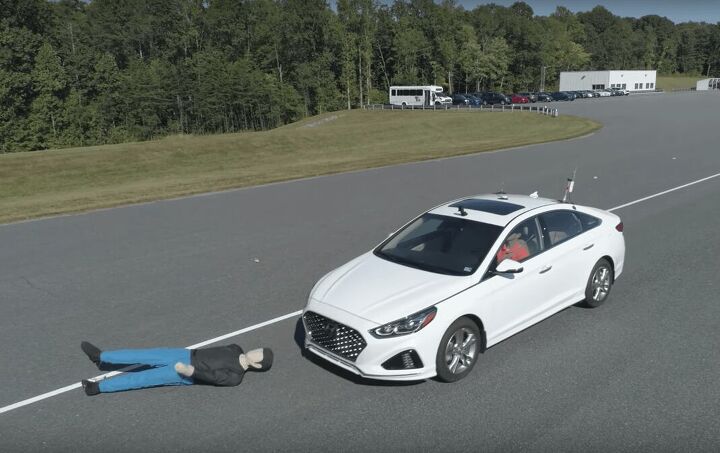




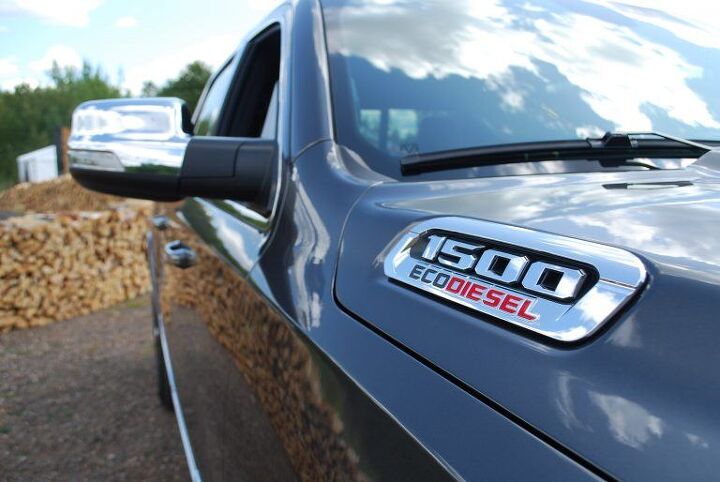
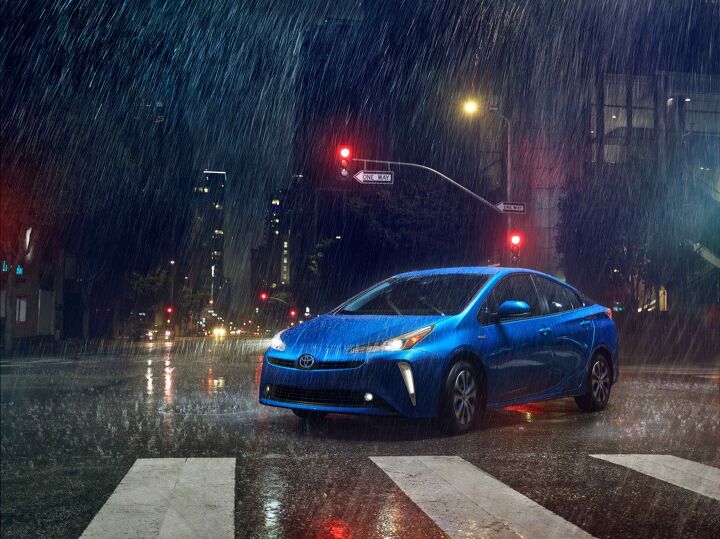

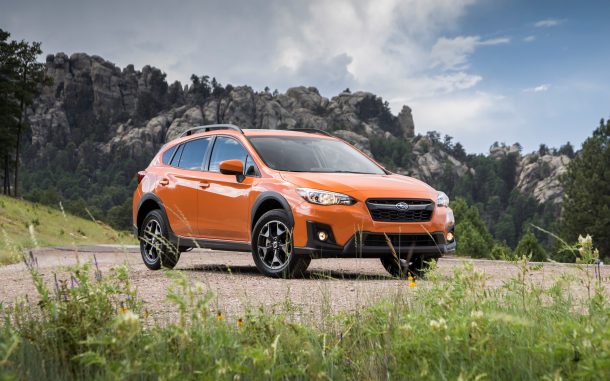


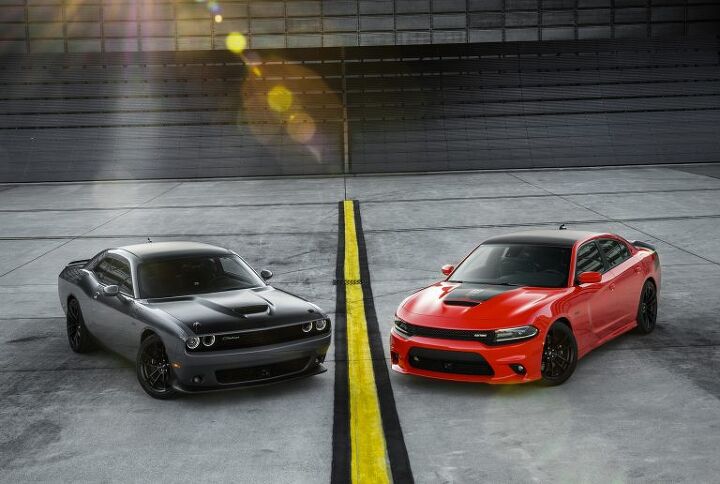















Recent Comments